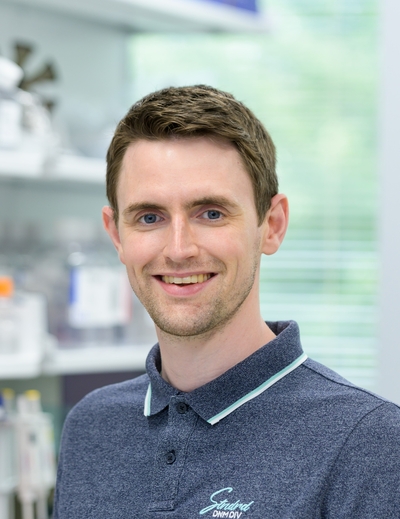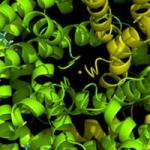
Research Topics
Protein-to-protein interactions are important to human health, but a large number of them remain uncharacterized. Some of this is due to a gap in imaging resolution between cell biology and structural biology. To bridge this gap, our lab is using crosslinking mass spectrometry (crosslinking MS) and other proteomics-based technologies combined with cryo-electron microscopy. These techniques allow us to visualize and describe how proteins are organized into molecular machines and are dynamically regulated. Our research goals are to functionally characterize newly discovered protein interactions and utilize disease models to understand their relevance to human health and cancer.
The topology of protein-to-protein interactions in situ in eukaryotic cells
The complexity and range of protein abundances in eukaryotic proteomes present a particular challenge for generating whole-cell interactomes by crosslinking MS and other technologies. The complexity of genetic tagging and difficult-to-purify protein complexes, such as those within membranes or phase-separated regions, requires studying interactions in situ. We pursue divide-and-conquer approaches to address this complexity and seek to generate a comprehensive 3D map of the proteome of an entire eukaryotic cell.
Discovery of novel protein complexes across human microbiome
The bacteria of the human gut have been implicated in many aspects of human health and disease. However, almost half of the protein-coding genes in the human gut microbiome do not yet have an annotated molecular function. This large proteomic 'dark matter' limits our interpretation of bulk genetic studies of the gut microbiome and of the roles of specific species. Crosslinking MS and other structural proteomics techniques allow us to generate whole-cell interactomes that enable us to design targeted experiments to characterize protein function.
Biography
Francis O’Reilly received his bachelor’s degree in biochemistry from the University of Edinburgh. He remained in Edinburgh to pursue his Masters by Research degree in the lab of Malcom Walkinshaw where he studied the structure of glycolytic enzymes using X-ray crystallography. For his Ph.D., he worked in the labs of Anne-Claude Gavin and Martin Beck at the EMBL-Heidelberg in Germany. There he developed approaches to combine proteomics with cryo-electron microscopy to improve the throughput of structural studies. He moved to the Technical University of Berlin for his postdoc in the lab of Juri Rappsilber where he developed crosslinking-mass spectrometry to identify and structurally characterize protein complexes in vitro and inside cells. Dr. O'Reilly joined the NCI in 2022 as a tenure-track Stadtman Investigator at the Center for Structural Biology.
Related Scientific Focus Areas


Microbiology and Infectious Diseases
View additional Principal Investigators in Microbiology and Infectious Diseases

Molecular Biology and Biochemistry
View additional Principal Investigators in Molecular Biology and Biochemistry


This page was last updated on Monday, September 30, 2024